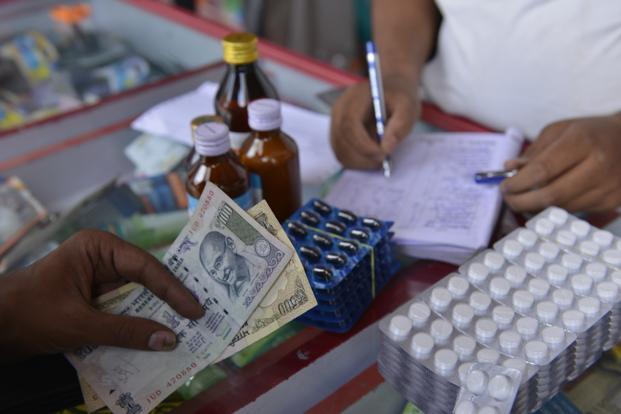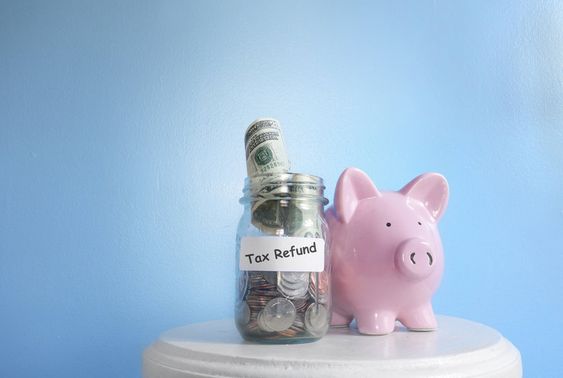
The presence of reimbursement of medical expenses came to fruition because of representatives placing in long working hours, work pressure, hereditary qualities, or different elements. Through these Central Government Health Schemes, the likelihood of high medical costs will undoubtedly turn into a piece of any representative’s use. In any case, on the other side, the ethical obligation to watch out for every one of these elements is assumed by managers.
Therefore, they give a ton of medical advantages to their workers as well as stretch out the offices to their families reduce prescription costs. Medical repayment is essentially a game plan between a business and a representative under which the business repays a bit of the medical costs brought about by the worker. Presently, this is basically paid and like some other pay, you can likewise guarantee charge exceptions of up Rs 15,000 on this reimbursement for medical expenses also.
Presently, you may have caught wind of ‘medical expenses reimbursements‘ and ‘medical recompense’. The terms may sound exchangeable, however, they are most certainly not. To comprehend the distinction allows first to take a gander at what they mean and how would they vary from each other. How about we additionally take a gander at how you can profit tax reduction from medical repayment.
What is Medical Reimbursement?
Table of Contents

A considerable measure of health benefits are accessible to representatives nowadays and with extended working hours, work pressure and other hereditary elements, medical expenses caused on yourself, companion or youngsters have turned out to be exceptionally normal.
Pay medical expenses is a game plan under which managers repay the part of the health expenses caused by the representative. The Income Tax Act permits a duty exclusion of up to INR 15,000 on medical reimbursements paid by the business.
Eligibility Criteria to Claim Medical Expenditure

Source :- kraftcpas . com
Under the Income Tax Act on gross total income, particular conditions have been endorsed with the goal that such consumption isn’t considered as essential in the hands of the worker:
i) The employee should have spent the amount of medical treatment.
ii) The sum ought to have been spent without anyone else or his family individuals’ medical treatment with medical reimbursement or medical allowance.
iii) The employer should reimburse such an amount to get a tax benefit by following the income tax rules.
iv) Sum repaid for medical reimbursement by the business does not surpass INR 15,000 in the budgetary year on original medical bills to provide a tax benefit.
How Much Amount Can Be Claimed?

In the event that the above conditions are fulfilled, the representative can take the tax reduction of the consumption brought about by him constrained to the degree of INR 15,000.
The exclusion is accessible just on the medical reimbursement of medical expenditures that are brought about on medical bills. A business can just repay what is really spent by the representative.
You can claim reimbursement and tax exemptions or tax deductions with health insurance that hospitals approved for tax free medical facility. Family members will get a fixed amount for treatment expenditure for prescribed diseases.
How to Claim?
One can guarantee reimbursement of medical expenses by presenting the first bills to the business. The business would in like manner repay such reimbursement of medical expenses caused subject to the general furthest reaches of Rs 15,000 without duty finding.
How To Get Approval Of The Claim

- Compulsory certificate A should be submitted separately on treatment from outdoor and on filling treatment by filling in Form B and after getting verified by the doctor and countersigned by the in-charge of the institute concerned.
- Attach the original copy of all bills/vouchers verified by the doctor.
- In the mandatory certificate, mention the name of the disease, duration of treatment, the amount spent, and the expenditure details list of the relevant funds should be attached which is verified by the doctor concerned.
- Bills / Bouchers should be paid on the same dates within the treatment period mentioned in the certificate of compulsory.
- The mandatory certificate must be signed by the treating physician and countersigned by the doctor in charge of the hospital.
- Reference / non-acceptance of the Divisional Medical Council / State Medical Council should be attached in the case of employees/officers serving for treatment in specific medical institutes within the state and Sanjay Gandhi Institute of Medical Sciences and institutions recognized by the State Government.
- Attach government permission / non-official permission for treatment in the medical institution of another state outside the state. Attach a referral letter to the state doctor.
- The medical expenses related to the government regulations have been incurred on medical treatment in a private institution. Therefore, the said medical expenses should be verified according to the government or local authorities rates of the Chief Medical Superintendent Government District Hospital of the concerned district and submitted for signature. The lesser of the two will be countersigned.
- Attach (this Chief Medical Superintendent) certificate from the Government District Hospital / Medical College, whichever is concerned, that the said treatment facility was not available at the state level.
- Attach both prescription and discharge slips to OPD recruitment and discharge.
Acceptance of medical expenses incurred claims for medical treatment should be granted in the same condition when all the conditions/formalities for this have been fulfilled, if exceptions or non-extraneous approval are to be obtained in many cases, they should be referred to the government as per the earlier arrangement.
Medical Reimbursement v/s Medical Allowance

A large portion of the representatives gets confounded between the medical remittance part of the pay structure and reimbursement of medical expenses incurred that they get from a business in the wake of presenting their unique medical bills.
The medical stipend is a settled segment that you get each month as a major aspect of your monthly basis payments, which is assessable as compensation pay.
No bills are required to be submitted for taking this recompense. Though the medical reimbursements is a tax-exempt part and as talked about above, it is exempted up to the sum spent by a representative or Rs.15,000 whichever is less.
Income Tax Act Treatment For Salaried Person:

Source :- ndtv . com
This is managed in area 17(2) of the Income Tax Act as essential for taxable income. The entire measure of expenses caused by the business will be passable use to such bosses under the Income Tax Act for salary income.
If there should be an occurrence of a salaried individual who is furnished with a medical stipend, the entire sum will be assessable. The medical office in India gave to the representative or his needy relative (i,e kids, life partner, siblings, sister, and guardians) by his boss won’t be chargeable to assessment to the degree of the accompanying:
a) The medical office gave in a Hospital claimed/kept up by the employer.
b) The medical office gave in a Hospital of Central Government/State Government/neighborhood expert.
c) The medical office gave in a Private healing facility if the Government likewise suggests it for the treatment of Government workers.
d) The medical office accommodated the Specified medical office (given in standard 3A) in a doctor’s facility endorsed by the Chief Commissioner of Income Tax.
e) Health protection premium Medical protection premium paid in the interest of the worker or repaid to the representative by the business isn’t chargeable to impose in the hands of the representative.
f) Some other office in India – Any other use brought about or repaid by the business for giving a medical office in India isn’t chargeable to assess up to Rs. 15,000 in total for each evaluation year (settled medical remittance is completely chargeable to impose).
BOTTOM LINE:
Focus on wellbeing inclusion for your family by settling on a health care coverage plan Care Health Insurance for medical reimbursement and medical allowance.
If it’s not too much trouble, read the handout and outline to find out about our medical coverage plans cover as conditions may change.
FAQ:

Q. Who is eligible for medical reimbursement?
A. The sum for treatment more likely than not been spent on self or relatives, including life partner, kids, guardians or kin, and different dependants.
The predetermined sum, which doesn’t surpass Rs 15,000 in a monetary year, should be repaid by the business.
Q. How medical reimbursement is calculated?
A. Clinical repayment goes under Section 80D, wherein the most extreme breaking point endorsed is Rs. 15,000 p.a.
In the event that bills in regards to clinical repayment are not submitted on schedule by a worker, 30% of Rs. 15,000 will then, at that point become the available sum.
In any case, while recording assessment forms, workers can recover 30% of the sum.
Q. Is reimbursement for medical expenses taxable?
A. Clinical recompense is a fixed segment that you get each month as a feature of your month-to-month compensation, that is available as pay.
While Medical repayment is a tax-exempt or standard deduction segment and as examined above, it is absolved up to the sum spent by worker or Rs. 15,000 whichever is less as a medical expense.
Q. How do I make a medical reimbursement bill?
A. On Feb 1, Arun Jaitley proposed a standard derivation of INR 40,000 in lieu of clinical repayment and transport remittances for the citizens.
Under FY 2018-19, salaried people and beneficiaries need not need to outfit any bills or reports to guarantee the standard derivation of INR 40,000.
As proposed, there are no such standards to guarantee doctor’s visit expense repayment, citizens would straightaway be able to guarantee it.
Recommended Articles:-
- National Health Insurance: National Insurance Mediclaim Plan
- Point Of Service Plans Pros And Cons You Should Know
- Critical Illness Plans: All You Need To Know Before Purchasing
- Benefits of Family Floater Health Insurance
- Basic Knowledge Regarding Health Insurance TPA
- Benefits of Health Policy And Planning
- Detailed Health Insurance Laws: One Should Know
- Private Health Insurance In India: Know In Details
- Detailed Public Health Care Insurance laws: One Should Know